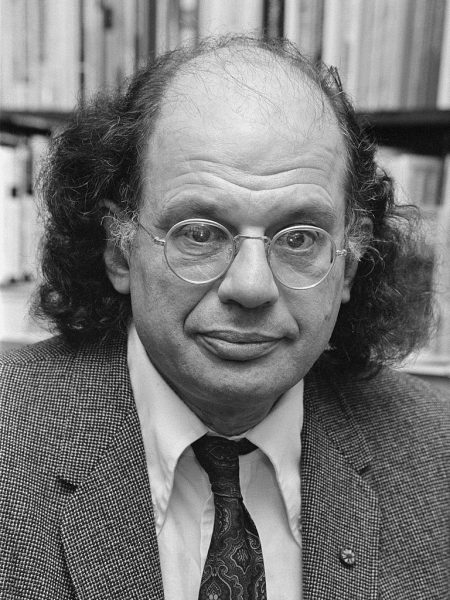
~by Michaela Hayes
Allen Ginsberg changed the world. There is really no way around this one. Ginsberg was hugely influential in so many areas of American life it is nearly impossible to believe that he was a real person and not a robot designed for superhuman warmth and creativity.
Ginsberg was born in New Jersey in 1926. Early on, Ginsberg became interested in the causes which would carry him through his life. He wrote letters to The New York Times as a teen about issues such as workers’ rights and World War II. He also began reading Walt Whitman in high school, a literary inspiration who would show up in his later work both in spirit and by name, such as in “Supermarket in California.”
Allen Ginsberg’s name is often associated with the Beat Movement, and rightly so. Ginsberg spearheaded the Beat Movement with a few other intellectuals while attending Columbia University in the 40s. The movement gained momentum in the 50s with Ginsberg’s publication of his most famous poem “Howl” and subsequent obscenity trial.
“Howl” is a lengthy, dense, and beautiful poem often considered to be autobiographical of Ginsberg’s life up to the point it was written. While it is not considered to be terribly explicit now by most literary standards, it was published in the conservative 50s and therefore faced pushback from the public. The poem unapologetically references homosexuality and sodomy, which was still considered a crime in all states. However, Ginsberg was cleared by the judge who insisted the poem contained socially progressive literary merit and was therefore protected under the First Amendment.
As a gay man himself, his refusal to be quiet about his homosexuality was (and still is) an inspiration to poets and citizens alike. That being said, the right of all citizens to free speech was only one of the issues to which Ginsberg devoted his life. The Beat poets are associated with their poetry, yes, but also with their political activism. Throughout his life, Ginsberg and his Beat comrades were active in the fight for gay rights, civil rights, religious freedom, and nonviolence as an alternative to war.
While there is much, much more to be said about Allen Ginsberg, I will wrap up this feature with a tidbit which may interest Coloradans specifically– Ginsberg was a practicing Buddhist and helped to open America’s first Buddhist college in Boulder, Colorado. The school was founded by Chogyam Trungpa, Ginsberg’s friend and spiritual guide. Trungpa insisted that Ginsberg put his own mark on the school, thus the Jack Kerouac School of Disembodied Poetics was born. The university still functions today as a small, non-profit liberal arts college.
To find out more about Allen Ginsberg and read some of his poetry, visit https://www.poetryfoundation.org/poets/allen-ginsberg